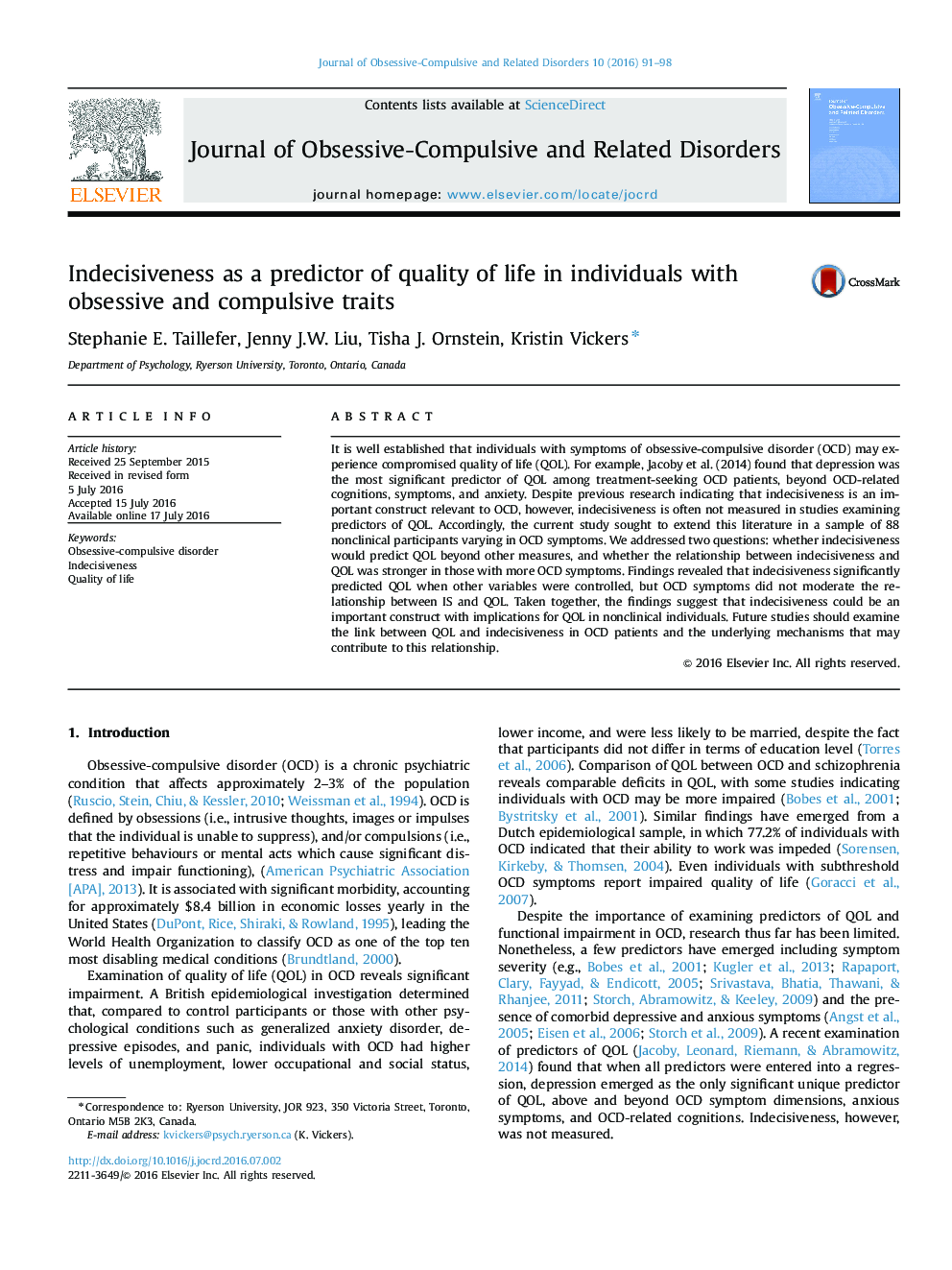| Article ID | Journal | Published Year | Pages | File Type |
|---|---|---|---|---|
| 912178 | Journal of Obsessive-Compulsive and Related Disorders | 2016 | 8 Pages |
•Indecisiveness (IS) occurs in obsessive-compulsive disorder (OCD).•Higher IS predicts lower quality of life (QOL) in subthreshold OCD.•IS also predicts QOL in those with few or no OCD symptoms.•IS could hold implications for psychosocial treatments of OCD.•Targeting IS could be a part of a psychoeducational intervention for controls.
It is well established that individuals with symptoms of obsessive-compulsive disorder (OCD) may experience compromised quality of life (QOL). For example, Jacoby et al. (2014) found that depression was the most significant predictor of QOL among treatment-seeking OCD patients, beyond OCD-related cognitions, symptoms, and anxiety. Despite previous research indicating that indecisiveness is an important construct relevant to OCD, however, indecisiveness is often not measured in studies examining predictors of QOL. Accordingly, the current study sought to extend this literature in a sample of 88 nonclinical participants varying in OCD symptoms. We addressed two questions: whether indecisiveness would predict QOL beyond other measures, and whether the relationship between indecisiveness and QOL was stronger in those with more OCD symptoms. Findings revealed that indecisiveness significantly predicted QOL when other variables were controlled, but OCD symptoms did not moderate the relationship between IS and QOL. Taken together, the findings suggest that indecisiveness could be an important construct with implications for QOL in nonclinical individuals. Future studies should examine the link between QOL and indecisiveness in OCD patients and the underlying mechanisms that may contribute to this relationship.
